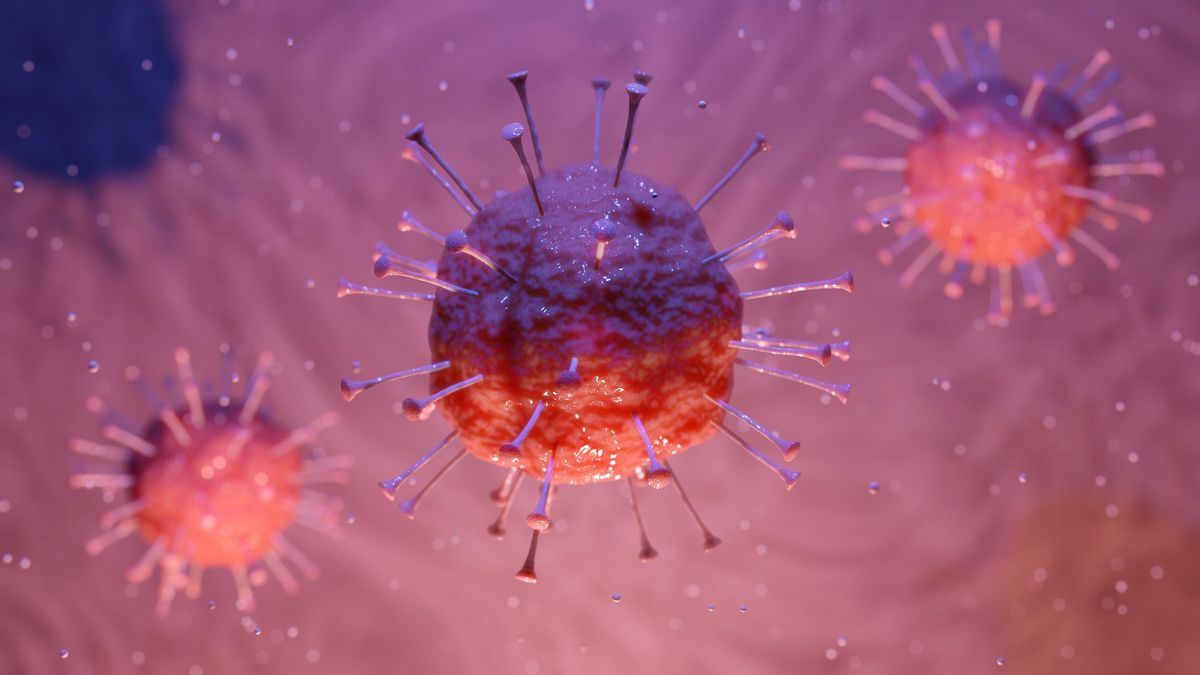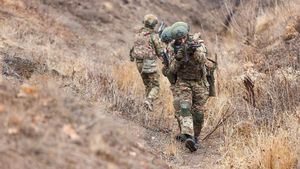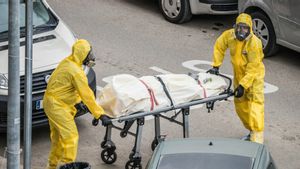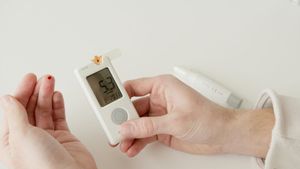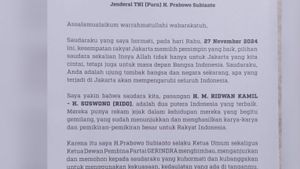JAKARTA - The COVID-19 mutation, the AY.1 variant, which is popularly known as the 'Delta Plus variant', has been found in Indonesia. There have been 3 cases in two regions of the country.
"The Delta Plus variant is actually not official yet. If you mean AY.1 there are already three. Already in Mamuju (West Sulawesi) and Jambi," said Director of the Eijkman Institute for Molecular Biology Prof Amin Subandrio, Tuesday, July 27.
The Delta Plus variant adds to the list of new Corona variants to watch out for. If the Delta variant alone is more contagious, what about the Delta Plus variant, right?
In a Public Health England report, this Delta Plus variant was identified in six genomes from India that were reported on 7 June. The UK health agency has confirmed the presence of a total of 63 genomes of the Delta variant with the K417N mutation.
The Delta Plus variant has a different mutation than the Delta variant or B1617.2, namely in the K417N protein. The same mutation was also found in the Beta variant (B1351) and Gamma variant (P1).
Why is it called the Delta Plus variant?The Delta Plus variant which has the code B1617.2.1 or AY.1 is characterized by the presence of the K417N mutation. The mutation is in the spike protein of the Corona virus, which helps the virus enter and infect human cells.
According to World Health Organization (WHO) Chief Scientist Dr Soumya Swaminathan, the addition of the term 'Plus' to the Delta Plus variant indicates that the variant has undergone further mutations. The mutation in the Delta Plus variant was also found in the Beta (B.1351) variant from South Africa and Gamma (P.1) from Brazil.
"The mutation has the potential to affect the antibody response against the virus. So, there is little concern that this variant will become more lethal, as it becomes more resistant to drugs," said Dr Soumya, quoted from the WHO's official Twitter, Tuesday, 27 July.
The Delta Plus variant is said to be immune to the monoclonal antibody combination treatment for COVID-19 that was approved in India. The treatments include Casirivimab and Imdevimab, which have received emergency use authorization in India from the Central Drug Standards Monitoring Organization.
Is it more dangerous?Sunit K Singh, professor of immunology and virology from the Institute of Medical Sciences, Banaras Hindu University, said it was possible that mutations in the Delta Plus variant, which was also found in several other variants, made the vaccine less protective.
"Beta variants with this mutation have shown the ability to escape the antibodies conferred by the COVID vaccination, at least to some extent," he explained.
Is it more contagious?According to immunologist Vineeta Bal, resistance of the Delta Plus variant to the monoclonal antibody combination is not an indication of higher virulence or severity. He said there was no reason to worry because the prevalence of the Delta Plus variant was still relatively low.
"How contagious this new variant is will be an important factor to determine whether it spreads faster or vice versa," Vineeta Bal told the PTI news agency.
The same thing was also expressed by Dr. Soumya on the WHO's official Twitter. According to him, cases related to the Delta Plus variant are still very rare, including globally.
Symptoms of the Delta Plus variantIndia's top virologist says the symptoms of the Delta Plus variant are almost the same as those found in the Delta variant and the Beta variant (B1351).
There are no distinct symptoms in the Delta Plus variant, generally including the following symptoms:
Cough Diarrhea Fever Headache Skin rash Discoloration of the fingers and toes Chest pain Shortness of breathThe English, Chinese, Japanese, Arabic, and French versions are automatically generated by the AI. So there may still be inaccuracies in translating, please always see Indonesian as our main language. (system supported by DigitalSiber.id)
